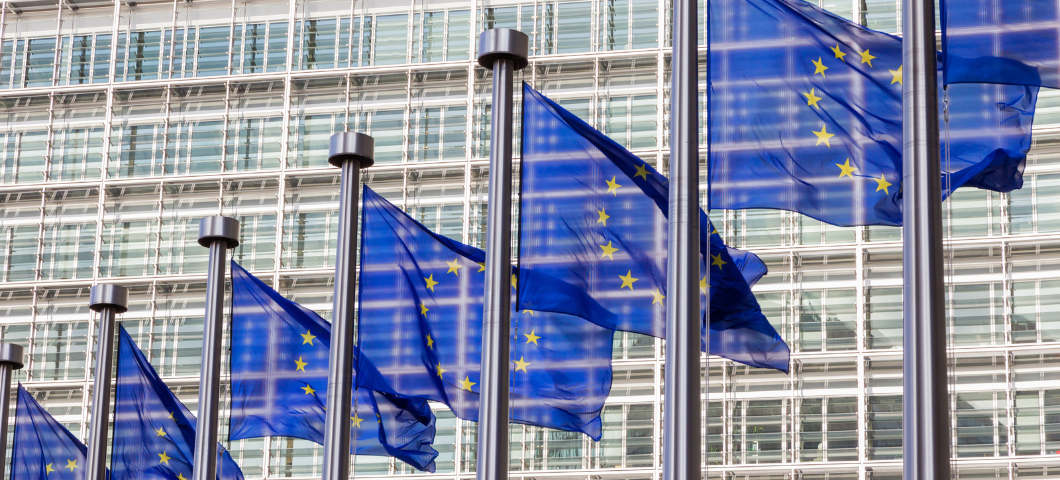
What to Expect from the Fallout of the European Elections
From 6-9 June 2024, Europeans headed to the polls to elect 720 MEPs to sit in the European Parliament. As one of the world’s largest democratic votes, the elected MEPs shape and decide on the new laws that influence the aviation sector across the EU, as well as approving the EU budget and scrutinising how it is spent. A key role for MEPs is to elect the President of the European Commission, appoint the Commissioners and hold them to account (the European Commission is the EU’s executive branch, responsible for proposing and implementing EU law and the day-to-day running of the EU).
EU-level policies and initiatives play a crucial role in shaping the regulatory framework and promoting the sustainable development of airports and aviation in Europe. The EU Single Aviation Market has enabled remarkable business transformation within Europe’s airports, and has been instrumental in ensuring the quality, efficiency and capacity of European airport infrastructure. At the same time, new EU rules on decarbonisation are essential, yet come with the risk of reducing airport connectivity and European competitiveness within the global aviation market. Adequate European funding to support the decarbonisation of airports is equally necessary. Additionally, the European Commission has already initiated a ‘Fitness Check’ of existing EU Regulations relating to airports: the EU Airport Charges Directive (ACD), the EU Regulation on Airport Slots and the EU Directive on Ground Handling. The elected MEPs will decide how the EU budget is spent – as well as debating, passing and shaping laws central to aviation. The overall political alignment of the European Parliament, therefore, has an unquestionable impact on the next five years in aviation.
How did Europeans vote? It is undeniable that the European Parliament has shifted to the right; with gains for the centrist/right leaning European People’s Party (+13 seats), the right-wing European Conservatives and Reformists (+4 seats), as well as the far-right Identity and Democracy (+9). The ECR could potentially become the third largest group in the Parliament, overtaking Renews. The Greens suffered a large loss of 18 seats. This will result in the European People’s Party forming a coalition in order to lead the chamber.
This coalition is largely due to the need for the new leader of the European Commission to win the support of 361 of the newly elected MEPs (a simple majority). Forming that majority will require bartering on some of the juicy roles on offer in Brussels – such as trade and economy roles in the commission, and leading roles on Parliament committees. It is in this nitty-gritty that the political agenda is likely to be shaped and formed for the next five years.
There are two potential paths for Von der Leyen: left or right. A coalition with the left-wing Socialists and Democrats (S&D) and left-leaning Renew political parties would give her 403 MEPs – potentially just enough to secure that magic number of 361 MEP approvals. It is important to note that, as the votes of approval are individual and secret, not all within each party are likely to support Von der Leyen – most polls estimate around 10% will abstain or vote against. If she was to win the support of the Greens, this would bring her to a safer 456 MEPs. If she was to instead win the support of the right-wing European Conservatives and Reformists (ECR) as well S&D and Renew, she would have an even safer majority of 476 MEPs. However, this measure may not go down well with left-wing S&D MEPs – who could turn against her. It is worth noting that while the far-right Identity and Democracy made significant gains, they did not gain enough to form any kind of right-wing coalition with the EPP and ECR.
But what does this mean, in certain terms, for aviation? Observers of the election may be concerned that the European Green Deal – the signature legislation of the last five years – may be rolled back. It is a complex package of laws governing greenhouse gas emissions from almost every part of the economy, including aviation. Some hold the viewpoint that politicians may take the Greens’ loss of seats as a sign voters are turning away from climate being a priority, and with the rise of far-right parties, that voters care more for industrial competitiveness and security. However, realistically, we are far from a roll-back scenario on the Green Deal. All four centrist groups within the Parliament are supportive of the Green Deal, and while there was a loss of climate advocates in France and Germany, other countries – such as Sweden – saw a boost in votes for pro-climate parties. Roll-backs of Green Deal policies will be extremely unpopular with left-wing groups within the Parliament, such as the S&Ds, of whom the incumbent EPP require the support of in a coalition. Additionally, the Greens’ lead candidate, Bas Eickhout, said his party would not support any rollback of existing laws. With this in mind, the leader of the EPP – Manfred Weber – has already stated “There will be no revision of the Green Deal as a whole.” Civil society has responded in kind, with ACI EUROPE joining a call with over 400+ cross-sector signatories to confirm the EU Green Deal as a top priority in the next EU Strategic Agenda.
On the more technical details, previous Transport Commissioner Adina Vălean has been elected as an MEP – a role she played for 12 years, before leaving to become Transport Commissioner in 2019. She is expected to leave her role of Transport Commissioner to take up her MEP seat, although this has yet to be formally announced. Vălean’s Romania could simply choose a replacement for Transport Commissioner, but it is not impossible that another Commissioner will take on the role interim for the rest of the Commission’s mandate.
For now, that is all we truly know at this point in the timeline. The European Council – representatives of Member States’ governments – must propose a European Commission President candidate to the Parliament. On 17 June, EU leaders met informally to discuss the potential candidates. At the formal European Council meeting (27-28 June), EU leaders met to agree on a package of high-level posts including those of both the European Commission and European Council Presidents, and of the High Representative.
New MEPs will take office as of 16 July, with the first constitutional sitting 16-19 July. When the European Commission President is elected will depend entirely on how quickly the European Council can come to a decision on their candidate. After the 2019 election, this happened mid-September – but if a candidate is nominated in time, the political groups could decide to hold the vote during the 16-19 July session. Sometime after the election of the President, the European Council will adopt a list of nominee commissioners upon suggestions by Member States. The list will then be presented to the Parliament, who can then elect or reject the Commission by a majority of votes cast. This is likely to happen in December, although should the Commission President be elected earlier than September, the vote on the College of Commissioners could also be earlier.
Reflecting on the election results, ACI EUROPE Director General Olivier Jankovec looks to the future. ‘The European elections have not resulted in a political earthquake, but they have clearly tilted the European Parliament to the right with the Greens and liberals losing out. This affirms pre-election calls and debates for the green agenda to be rebalanced, so that it takes into account competitive and social impacts – as well as the burden on States and companies coming from the implementation of the EU Green Deal and in particular Fit for 55. Such rebalancing is especially needed for aviation. We are not challenging Fit for 55, but calling for more flexibility and supportive mechanisms in its implementation.
There is no question that science remains unequivocal about the need to address climate change and that the EU should remain at the forefront of climate action. Ultimately, we must ensure that effective decarbonisation goes hand in hand with the preservation of the unique social and economic benefits of air connectivity. This is the agenda we will pursue at ACI EUROPE in this next political cycle, and we very much look forward to engaging with the new European Parliament on how to chart that way forward.’
Stay tuned to ACI EUROPE’s updates in order to keep informed on the latest developments.
ACI EUROPE Press ReleaseConfirming the Green Deal as Europe’s growth and security engine, providing much needed clarity and stability to industries and citizens
ACI EUROPE Airport Industry Manifesto for the next EU political cycle



